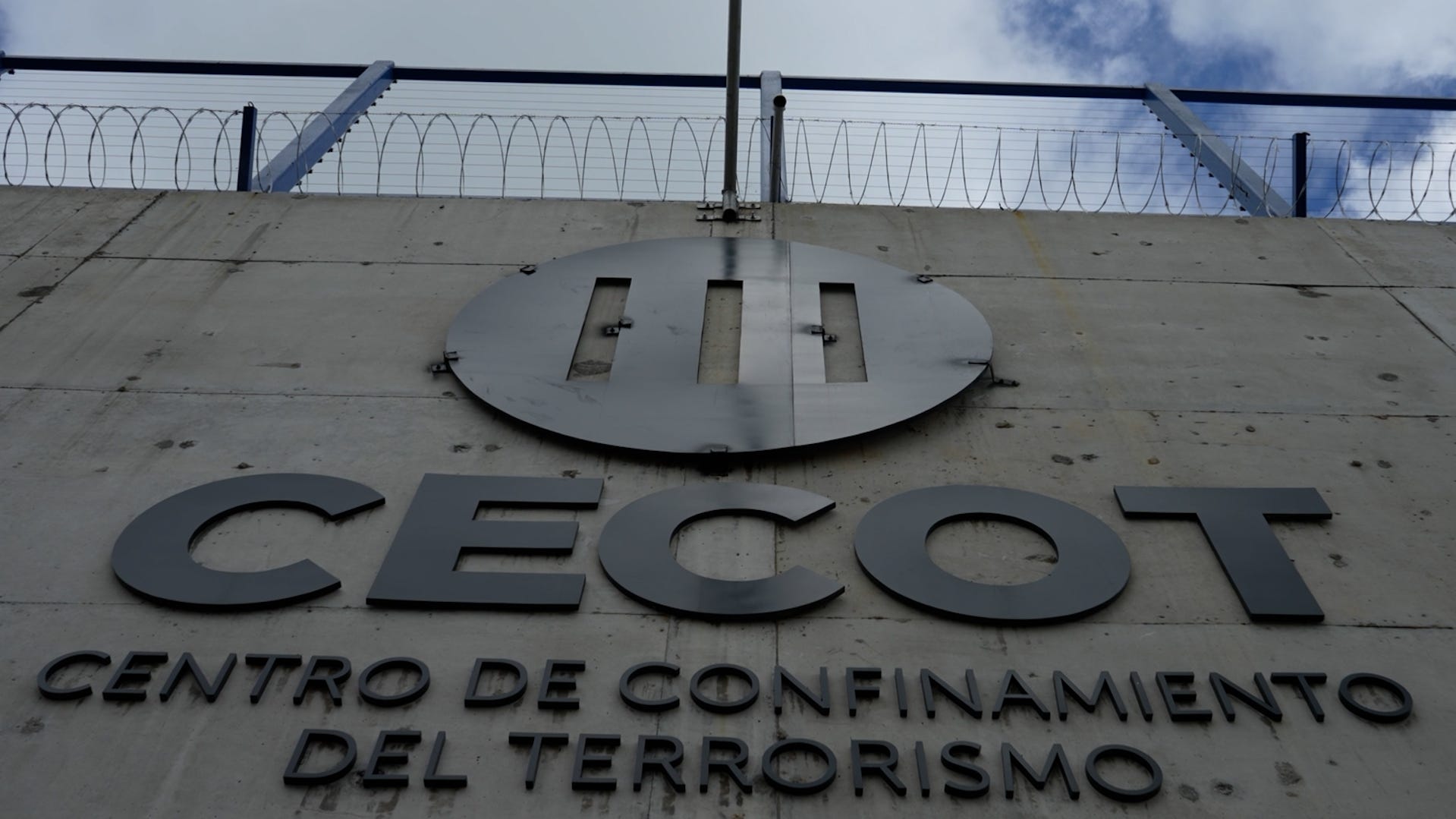Trump administration asks Supreme Court to block order to return deported Maryland father

The family of a Maryland father mistakenly deported by the Trump administration waited Monday to learn whether he will be returned to the United States or remain in the El Salvador prison where he is being held.
The Trump administration asked the U.S. Supreme Court on Monday to block a lower court's order that Kilmar Abrego Garcia must be returned to the United States by the end of the day.
A three-judge panel of the 4th U.S. Circuit Court of Appeals, based in Richmond, Virginia, had ruled that the 11:59 p.m. Monday deadline would remain place.
"The United States Government has no legal authority to snatch a person who is lawfully present in the United States off the street and remove him from the country without due process," Appeals Court Judge Stephanie Thacker wrote in a brief opinion accompanying the panel's ruling on Monday. "The Government's contention otherwise, and its argument that the federal courts are powerless to intervene, are unconscionable."
Federal immigration agents arrested Abrego Garcia, 29, in March after pulling him over in an Ikea parking lot near his home in Beltsville, Maryland, about half an hour outside of Washington. The Trump administration contends he is a member of the MS-13 criminal gang, although it has presented no evidence to back up that claim.
Government lawyers admitted in court documents that Abrego Garcia's deportation was a mistake because he had a protective order in a separate case that barred him from being expelled from the United States. But the Justice Department says it has no authority to return him to the United States because he is in a foreign country.

On Friday, U.S. District Judge Paula Xinis of Maryland chastised government lawyers from the bench for Abrego Garcia's arrest and imposed the deadline for his return. In a written order on Sunday, Xinis called Abrego Garcia's removal a "grievous error" and said the risk of harm holding him in El Salvador's Terrorism Confinement Center, known as CECOT, "shocks the conscience."
Xinis said the government has not provided evidence that Abrego Garcia has gang ties nor explained why he is being held in CECOT, which has been criticized for its harsh and dangerous conditions, as well as its rough treatment of prisoners.
"That silence is telling," Xinis wrote in the memorandum opinion upholding her ruling. "As Defendants acknowledge, they had no legal authority to arrest him, no justification to detain him, and no grounds to send him to El Salvador – let alone deliver him into one of the most dangerous prisons in the Western Hemisphere.”
On Saturday, Justice Department lawyers challenged the order by Xinis, who was appointed by former President Barack Obama.
“That order is indefensible,” they wrote in the emergency motion. “Foremost, it commands Defendants to do something they have no independent authority to do: Make El Salvador release Abrego Garcia, and send him to America.”
They continued that line of reasoning in their filing with the Supreme Court on Monday.
"If this precedent stands, other district courts could order the United States to successfully negotiate the return of other removed aliens anywhere in the world by close of business," Solicitor General D. John Sauer wrote.
Government lawyers compared the administration's power to bring Abrego Garcia back to a court ordering the administration to end Russia's war in Ukraine or return Israeli hostages held by Hamas in Gaza.
In mid-March, Abrego Garcia, a sheet metal worker, was one of hundreds of people accused of being gang members the U.S. government expelled to CECOT. President Donald Trump invoked the seldom-used 1798 Alien Enemies Act to expedite deportations to El Salvador.
Federal immigration agents detained Abrego Garcia on March 12 when he was returning home from work. His 5-year-old son, who is autistic, was in the backseat.
Trump officials later admitted Abrego Garcia's removal was an "administrative error." Family lawyers said they’ve been unable to contact him in CECOT.
Abrego Garcia’s lawyers said in court filings on Sunday that the government mischaracterized Xinis’ order as foreign policy instead of upholding a judge’s order against Abrego Garcia’s mistaken detention and deportation by Immigration and Customs Enforcement.
“If ICE can ignore binding legal protections and no court can do anything about it, then our laws are meaningless,” Simon Sandoval-Moshenberg, Abrego Garcia’s lawyer, said in a statement.
Abrego Garcia's wife, Jennifer Vasquez Sura, and son – both U.S. citizens – sued the government for his return.
On Sunday, Vasquez Sura said in a statement she was "anxiously awaiting" both President Donald Trump and Salvadoran President Nayib Bukele's administrations to "do the right thing and bring my husband home."
She urged the two presidents, as fathers, to consider the pain they've inflicted on her family with their "ongoing attempts" to delay Abrego Garcia's return.
Contributing: Bart Jansen and Joey Garrison.